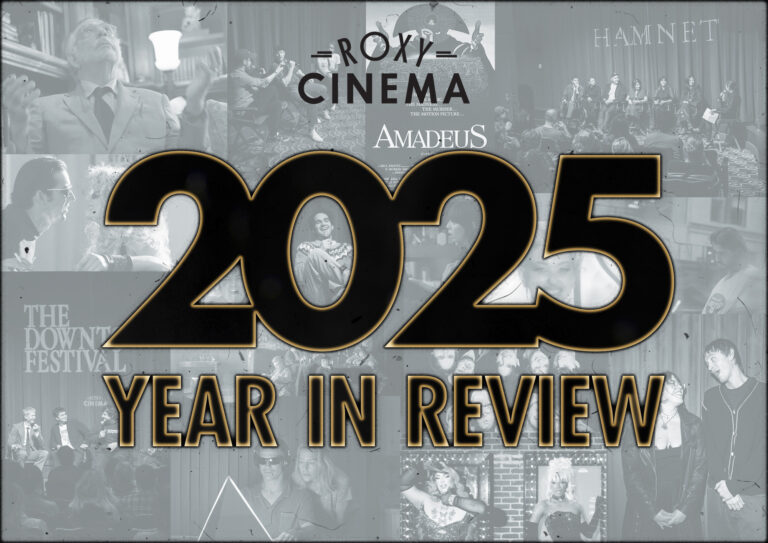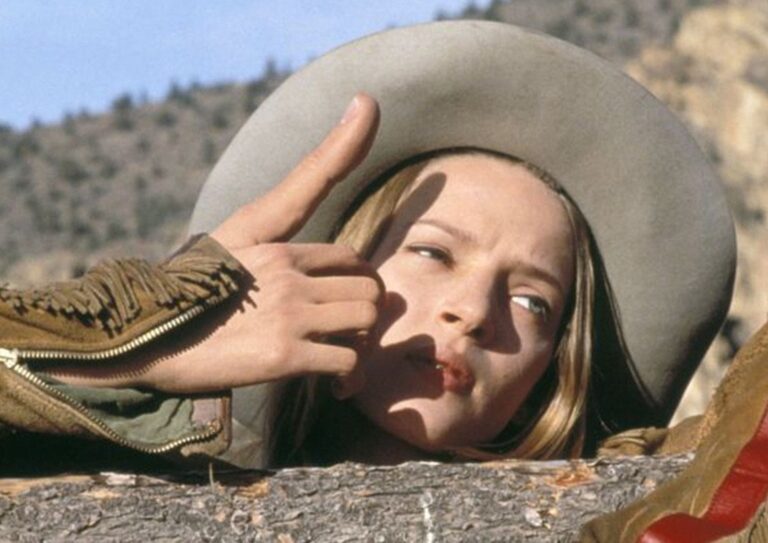Caligula: The Ultimate Cut - A Return To The Original Vision
A new edit of this controversial & cautionary tale restores it to the glory of the Roman Empire.
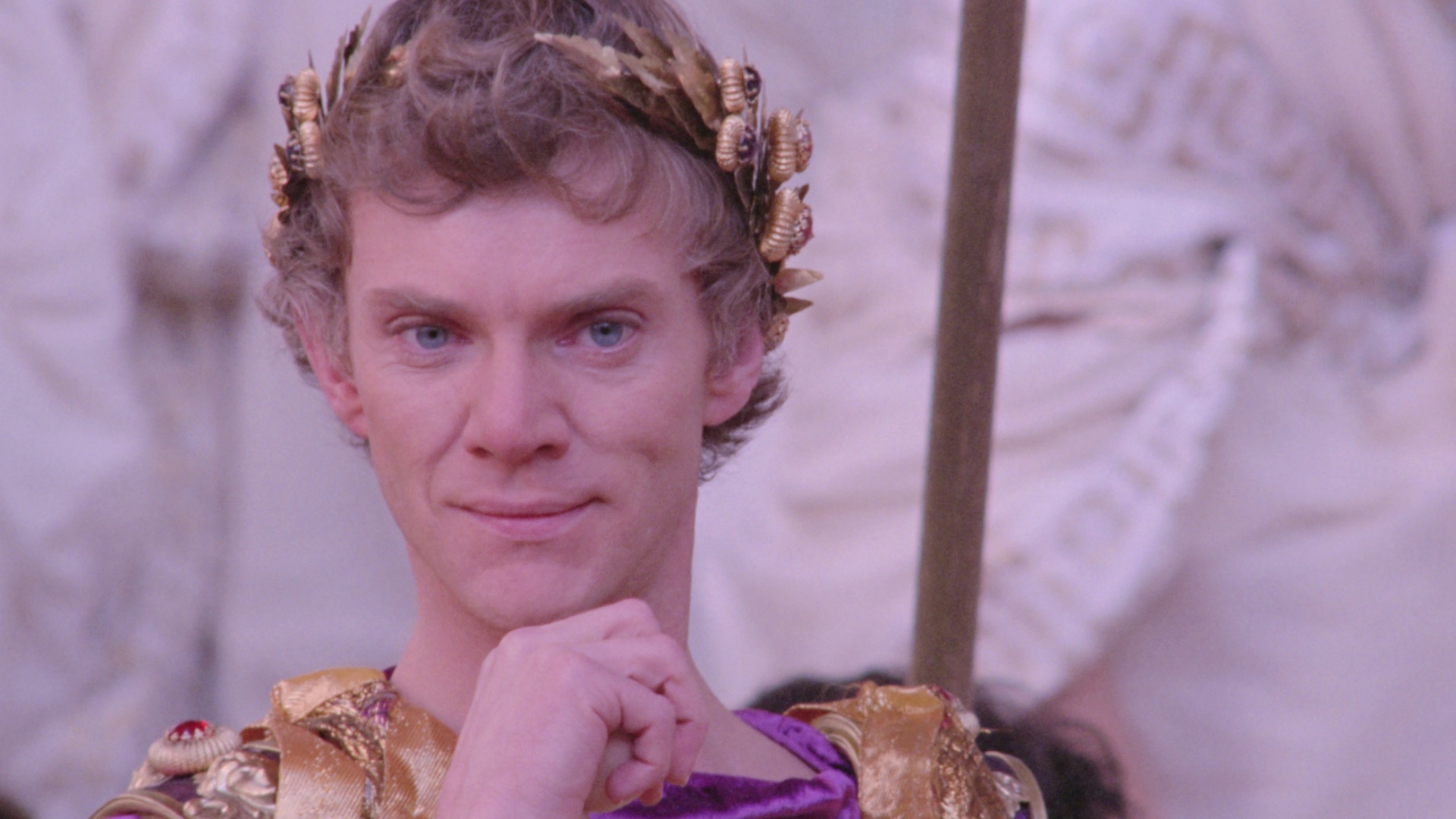
Malcolm McDowell in Caligula: The Ultimate Cut
A few days after its premiere in Rome, the film was confiscated by the Italian Police. Upon shipment to the US, it was seized by customs and became embroiled in lawsuits from cities across the country. Roger Ebert gave it zero stars. It is still banned in multiple countries. For all these reasons, you’ve probably heard of the film Caligula. More recently thought of as a cult film, what was initially billed to be a great historical epic ended up as a 156 minute film containing mostly pornography. To find out why this was the outcome of a major production one only has to draw the lines between the throughline of absolute power from Rome to Hollywood.
For those in need of a history refresher, Caligula was the third emperor of the Roman Empire and widely considered the first to be mentally ill. Over the course of a four year reign he made liberal use of his deification as Caesar. There are records of him hosting lavish gladiatorial fights which he would participate in, taking his sisters as lovers, and promoting his horse to the senate. For these reasons and more, nearly two millennia later, Penthouse Magazine founder Bob Guccione saw the story of Caligula as the perfect first move for his brand into the film industry.
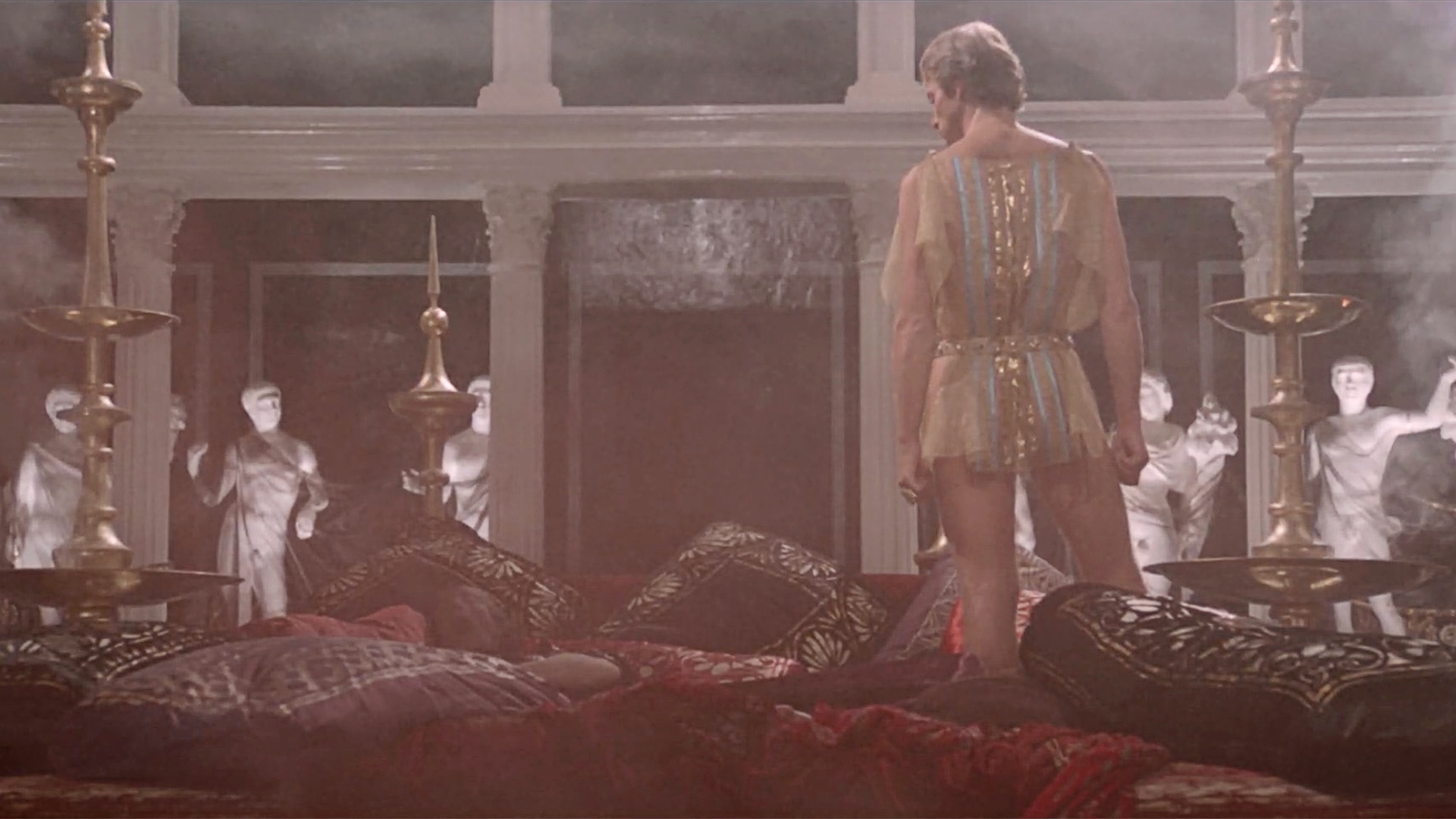
Ancient Rome is seen as an overtly sexual time in western history. Phallic reliefs lined much of the building exteriors, eventually removed during the rise of Christendom.
Early in the production, Guccione hired Gore Vidal, a prolific novelist & screenwriter, whose first pass at the script received the note to have fewer gay sex scenes. Tinto Brass, an Italian director known for avant-garde films with a flare for eroticism was aptly hired to direct the film. They brought a star studded cast to Rome, including Malcolm McDowell as the title role, Helen Mirren to play his fourth and final wife, and Peter O’Toole as his predecessor, Tiberius. Framed in lavish sets and costumes by Danilo Donati, the production captured countless hours of film. But by the time the film wrapped production in 1976, Brass decided to quit and distance himself from the film because Guccione insisted on having more unsimulated sex scenes typical of Penthouse. Even after Brass’ exit, Guccione hired a small crew to capture additional sex scenes and added them to the final edit. Much of the performances and plot moments were then cut in favor of the pornographic for the final release.
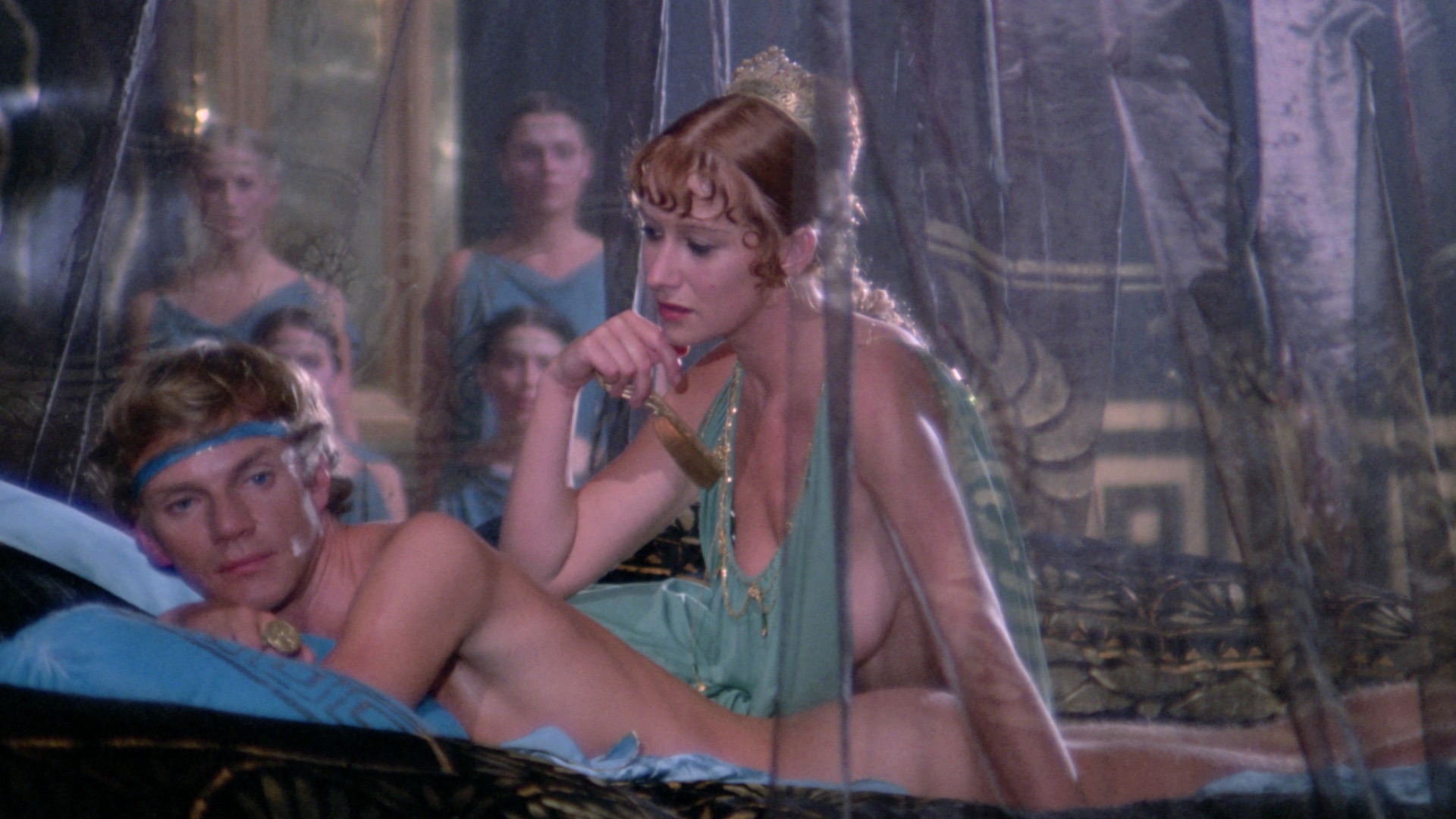
Danilo Donati’s production design and costume work utilizes a diverse color palette to set the tones of each scene.
In classic imperatorial fashion, Guccione bypassed the MPAA rating system (considering an X rating “demeaning”) and rented a theater in NYC for the premiere. Instead of leasing the prints, the distributors continued this approach by renting cinemas known for playing foreign and art films. Through this, the film was a success financially from international markets. Of course, selling pornography in 1979 was easy. Garnering critical acclaim however, was not. Ever since Cinephiles have wondered if it could’ve been a film of more timeless merit worthy of its historical subject and cautionary tale.
Enter Caligula: The Ultimate Cut, a full 3 hour narrative experience akin to the restored glory that its creative team initially conceived. Based on 96 hours of found footage, this is a complete reconstruction of the film, scrapping every frame of the initial release and bringing a greater focus to the feature’s original script and the actors performances. And though there are still explicit sex scenes, these edits are considered more grounded in plot and focused on the character relationships. On August 24th it will be released in theaters around the country and will be stopping at none other than your favorite TriBeCa repertory, The Roxy Cinema. Book your TICKETS now to see what Malcolm McDowell considers some of his best work and a never before seen take on the ruling class of The Roman Empire.
Words by Robert Hamill
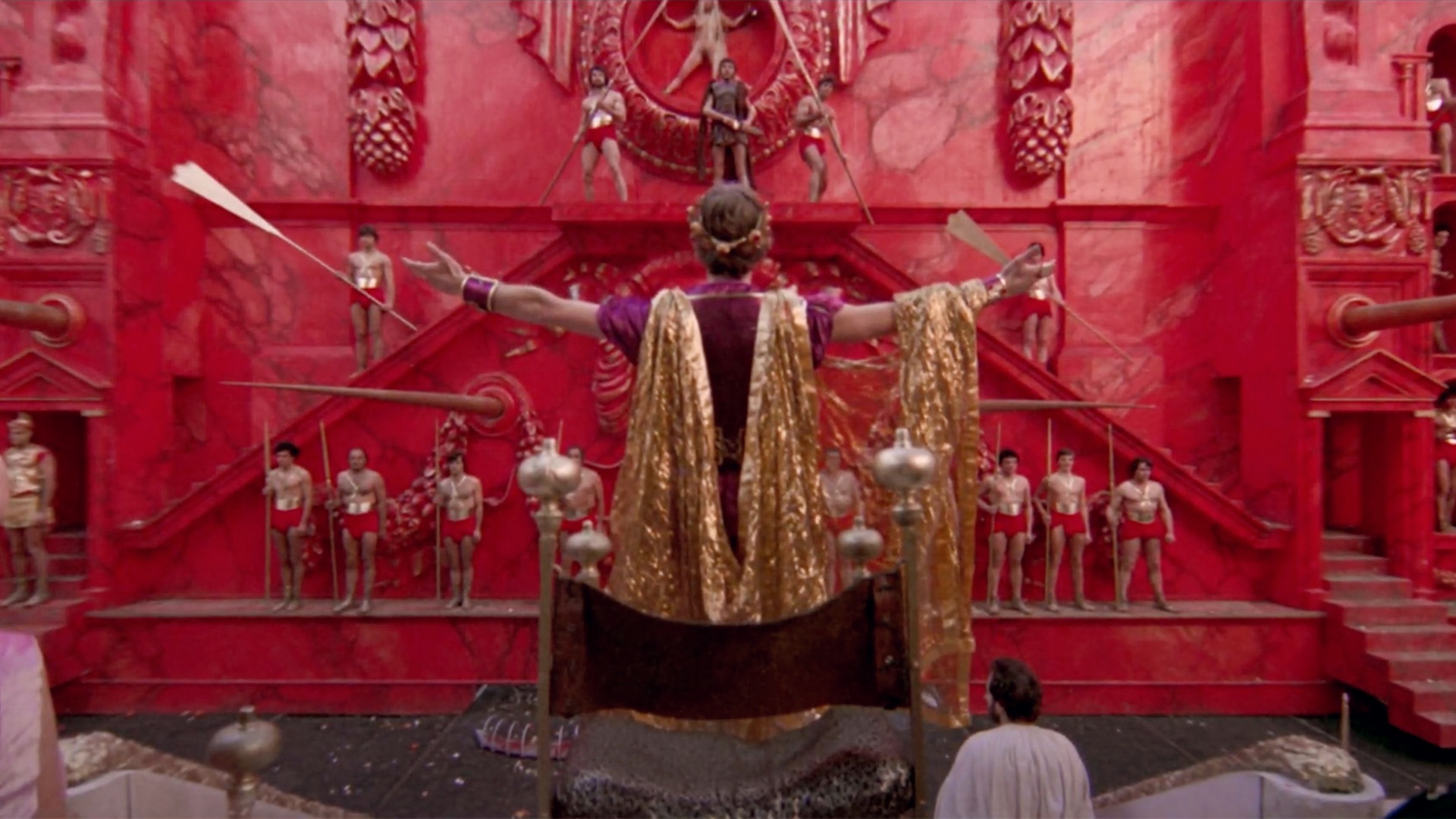
Malcolm McDowell felt betrayed by the original film. He’s stated his awe at how much better his and the other actors work is presented in The Ultimate Cut.

